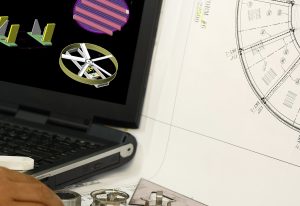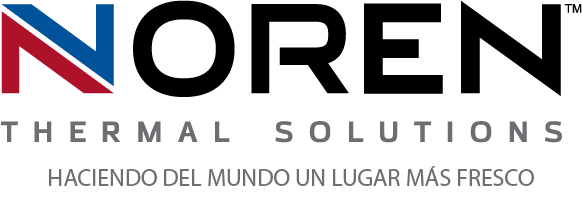 As the art (and the importance) of electrical thermal management has evolved, versatility and customization have become important aspect of modern heat exchanger technology. They’ve also become significant challenges – designing advanced thermal management technology is one thing, but ensuring that every innovative design performs as expected is another. Through comprehensive design, analysis, and feasibility testing, manufacturers can create increasingly more advanced heat exchanger designs while minimizing errors, reducing turn around times, and maximizing overall efficiency.
As the art (and the importance) of electrical thermal management has evolved, versatility and customization have become important aspect of modern heat exchanger technology. They’ve also become significant challenges – designing advanced thermal management technology is one thing, but ensuring that every innovative design performs as expected is another. Through comprehensive design, analysis, and feasibility testing, manufacturers can create increasingly more advanced heat exchanger designs while minimizing errors, reducing turn around times, and maximizing overall efficiency.
The Point of the Study
A heat exchanger feasibility study combines cutting-edge simulation, engineering, and testing capabilities to gauge how well a thermal management solution will work within any given application. After the application is thoroughly analyzed and a solution is designed, experts can conduct a feasibility study to ensure that the projected solution will provide the optimal function required. The point is to save time and money throughout the design and manufacturing process, and to guarantee that the final product doesn’t have to be recreated due to discrepancies in the design.
What Are the Steps?
A feasibility study is comprised of several different steps. The initial design phase includes 3D digital modeling and CFD analysis to determine the mechanical layout and thermal performance criteria of the heat exchanger. Tools and fixtures are then fabricated and tested, and finally, prototypes can be rapidly printed to test components and processes per mechanical and performance requirements.
What Happens Next?
Along with feasibility testing, 3D prototyping is essential to a heat exchanger manufacturer’s ability to maintain consistently high quality in their products. Every step in the design and analysis process is performed by a team of experts whose input influences the heat exchanger’s design. However, not every variable can be accounted for, and together, feasibility testing and 3D printing can make sure no unforeseen variances render the heat exchanger’s design ineffective.
For more information about the importance of heat exchanger feasibility studies, call Noren Thermal Solutions in Taylor, TX, at 866-936-6736.







